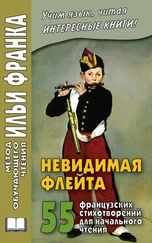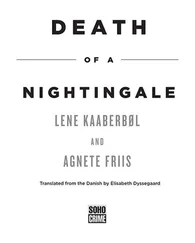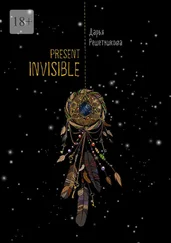Lene Kaaberbol - Invisible Murder
Здесь есть возможность читать онлайн «Lene Kaaberbol - Invisible Murder» весь текст электронной книги совершенно бесплатно (целиком полную версию без сокращений). В некоторых случаях можно слушать аудио, скачать через торрент в формате fb2 и присутствует краткое содержание. Год выпуска: 2012, ISBN: 2012, Издательство: Soho Crime, Жанр: Старинная литература, на английском языке. Описание произведения, (предисловие) а так же отзывы посетителей доступны на портале библиотеки ЛибКат.
- Название:Invisible Murder
- Автор:
- Издательство:Soho Crime
- Жанр:
- Год:2012
- ISBN:9781616951719
- Рейтинг книги:5 / 5. Голосов: 1
-
Избранное:Добавить в избранное
- Отзывы:
-
Ваша оценка:
- 100
- 1
- 2
- 3
- 4
- 5
Invisible Murder: краткое содержание, описание и аннотация
Предлагаем к чтению аннотацию, описание, краткое содержание или предисловие (зависит от того, что написал сам автор книги «Invisible Murder»). Если вы не нашли необходимую информацию о книге — напишите в комментариях, мы постараемся отыскать её.
Invisible Murder — читать онлайн бесплатно полную книгу (весь текст) целиком
Ниже представлен текст книги, разбитый по страницам. Система сохранения места последней прочитанной страницы, позволяет с удобством читать онлайн бесплатно книгу «Invisible Murder», без необходимости каждый раз заново искать на чём Вы остановились. Поставьте закладку, и сможете в любой момент перейти на страницу, на которой закончили чтение.
Интервал:
Закладка:
Nina pulled into Fejøgade and glanced up at the windows on the second floor. The living room lights were on, so Ida must have crawled out of her cave while Nina was out and was probably happily enjoying the brand-new flat screen and having the whole sofa to herself. Nina had sent her a text message that she would be home late from work. She hadn’t given a reason, and Ida hadn’t asked. Just sent a laconic “OK”—without a smiley, of course. Ida considered emoticons tween, and if she ever did use them it would never be in a text message to Nina.
Nina left the first aid kit on the back seat and slammed the car door. She had no desire to go inside. Damn it. How had they ended up like this?
She left the question unanswered in some corner of her mind as she carefully pushed open the door to the apartment. The TV or stereo was on in the living room. “Let me rot in peace,” thundered the lead singer from Alive with Worms, an iconic Copenhagen Goth-rock group. Nina recognized both the singer and the Goth style from her own distant youth and felt annoyance starting to boil in her. Why did teenagers have to be such damned clichés? Did parents really only get to choose between pop chicks who wore lip gloss that reeked of strawberry, watched Paradise Hotel on TV, and had a stack of glossy magazines on their desk, or self-pitying mini-Goths who painted the insides of their heads black, romanticized anarchy and evicted squatters, and dug around in small, obscure shops for tattered clothes and narrow-minded music that would put them in an even worse mood? The latter was perhaps marginally better than the former, but hardly original, and it was ridiculously difficult to take it seriously while it lasted.
“Hi.”
She opened the door into the living room and stood there reeling slightly at the unexpected sight.
Ida was sitting on the sofa. Nina’s guess had been right about that part of it. However, there was a young man sitting next to her, holding one of Ida’s oversized teacups in his hands. He had just been saying something to Ida, but now they both turned around to face her. The guy smiled, hurriedly placed his cup on the table, and shyly ran a hand up over his clean-shaven scalp.
How old was he? Sixteen, maybe seventeen?
Nina looked over at Ida, who stared back with a mix of defiance and embarrassment. Then she obviously decided that offense was the best defense. Her posture became professional and self-assured.
“I thought you said ‘late.’ ”
“Uh, yes,” Nina mumbled, reminding herself how easy it was for mothers to stumble and turn into clichés right alongside their teenage daughters. “It’s almost nine o’clock.”
The boy on the sofa stood up and quickly wiped the palms of his hands on his trousers, which were hanging dangerously low on his hips.
“Hello,” he said politely. “I’m Ulf.”
Nina tamely extended her hand to him, weighing her options. When it came right down to it, she really had only one, she decided.
“Hi, Ulf,” she said. “Nice to meet you.”
 HE BUS BROKEdown a little north of Dresden, near a place called Schwartzheide. The driver managed to get the bus to limp along to the next motorway exit and partway down the ramp before the old Ford Transit conked out completely.
HE BUS BROKEdown a little north of Dresden, near a place called Schwartzheide. The driver managed to get the bus to limp along to the next motorway exit and partway down the ramp before the old Ford Transit conked out completely.
The driver tried without success to get everyone to stay inside. Within five minutes Sándor was the only still obediently sitting in his seat. The rest were spread out like a motley human blanket across the grassy slope, peeing, talking, stretching, and arguing. Some of them started walking toward the highway rest stop cafeteria they could see a few hundred meters away. The arguments centered on the driver, who was by turns yelling futilely at the passengers, staring probingly at the engine, and trying to reach someone on his mobile phone.
Finally Sándor got up, too. His knee hurt after having been wedged in the same position for more than twenty-four hours. He felt greasy and unkempt, and every cell in his body was screaming for coffee. His phone also really needed a charge. The cafeteria was tempting, but he didn’t have any Euros or his credit card. Or … did he? The driver’s jacket was hanging on a hook behind the driver’s seat.
He felt oddly delinquent, sticking his hand in another man’s pocket, even though the only thing he was planning to steal was something that belonged to him. He glanced out the windscreen, but no one seemed to be paying any particular attention to him. His card was in the middle of a bunch of others in a plastic pouch—he obviously wasn’t the only one whose finances the driver was “looking after.”
Sándor stuffed the pouch with the other cards back in the pocket of the unattended jacket, pulled the charger out of his bag, and exited the minibus. Outside, the morning traffic was edging its way around the broken-down bus by driving partly on the shoulder, and the mist over the road was so heavy it almost felt like rain. The cafeteria sign, a big yellow coffee cup with wisps of white steam in artistically swooping neon, shone like a lighthouse through the fog.
Sándor got in line at the checkout and splurged on a cellophane-wrapped croissant along with his coveted cup of coffee, placing both on his plastic tray. He realized a little late that he didn’t have any ID if the girl at the register didn’t automatically accept his Hungarian Visa card, but luckily she did. Given that they were right off the E55, they probably saw a little of everything here, and even at German autobahn prices, the price of his breakfast was small change to them.
He spotted a free table with—hallelujah—an available socket, and gratefully slid onto the red vinyl seat. The coffee smelled amazing. The croissant tasted like cotton.
As he sat there imagining he could feel the caffeine rushing to his deprived cells and filling them up, a text message appeared on his resurrected phone with a beep. At first he couldn’t tell who it was from, because the number was a different one from what Tamás had given him that evening on Szigony Street, and there was no sender name. WHY AREN’T YOU COMING , it said in desperate all caps. “Didn’t you see my e-mail? Help me. I’m dying!”
The last part was in Romany—“ Te merav! ”—and that was what made him realize the message was from Tamás. He stared at the phone’s miniature bluish-white screen. He had heard the phrase so often, in Galbeno and also in the Gypsy neighborhood in the Eighth District. Te merav, te merav. It’s so hot, I’m dying. I’m so tired, I’m dying. Give me a cup of coffee, I’m dying.… A hyperbolic expression his Hungarian stepmother would have found inappropriate, if she could’ve understood it, that is. But was this hyperbole, or did Tamás really mean it? There was a desperate quality to the rest of his message that made Sándor think this was more than merely an expression.
He tried calling the number, and it rang, but no one answered.
He hadn’t checked his e-mail in almost a week now, since he no longer had a computer. The NBH had it. He was going to have to find an Internet café somewhere if he wanted to read the e-mail Tamás had apparently sent him.
Te merav . He hoped Tamás was just being melodramatic.
 KOU-LARSEN WAS STANDINGin his garden, looking at those damned minarets. He couldn’t believe they had been allowed to build them that tall, right next to a residential neighborhood. Someone in his old office had completely dropped the ball, he decided. The zoning laws called for low residential structures and scattered recreational areas. Not a word about prayer towers.
KOU-LARSEN WAS STANDINGin his garden, looking at those damned minarets. He couldn’t believe they had been allowed to build them that tall, right next to a residential neighborhood. Someone in his old office had completely dropped the ball, he decided. The zoning laws called for low residential structures and scattered recreational areas. Not a word about prayer towers.
Интервал:
Закладка:
Похожие книги на «Invisible Murder»
Представляем Вашему вниманию похожие книги на «Invisible Murder» списком для выбора. Мы отобрали схожую по названию и смыслу литературу в надежде предоставить читателям больше вариантов отыскать новые, интересные, ещё непрочитанные произведения.
Обсуждение, отзывы о книге «Invisible Murder» и просто собственные мнения читателей. Оставьте ваши комментарии, напишите, что Вы думаете о произведении, его смысле или главных героях. Укажите что конкретно понравилось, а что нет, и почему Вы так считаете.












